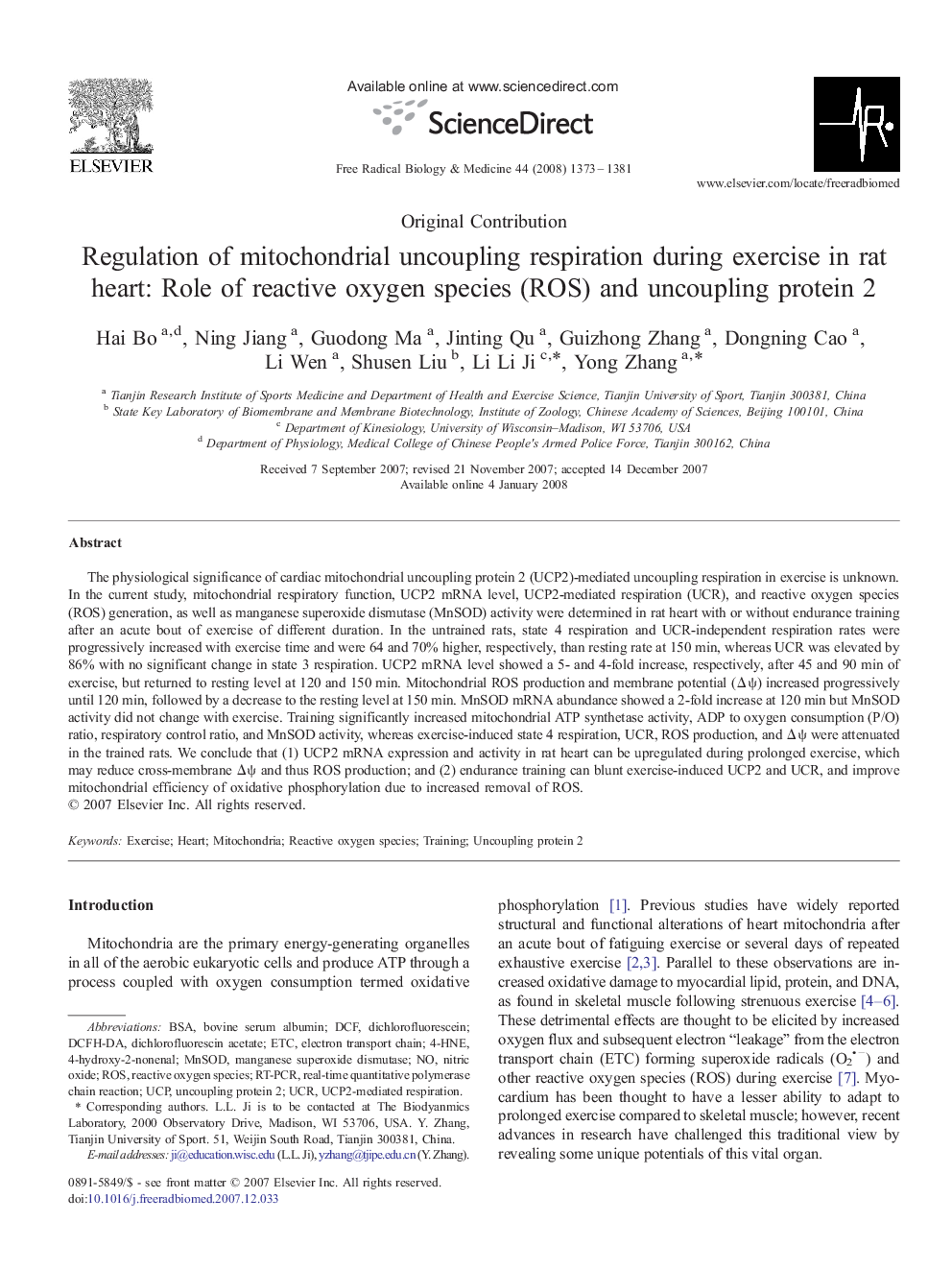| کد مقاله | کد نشریه | سال انتشار | مقاله انگلیسی | نسخه تمام متن |
|---|---|---|---|---|
| 1910948 | 1046794 | 2008 | 9 صفحه PDF | دانلود رایگان |

The physiological significance of cardiac mitochondrial uncoupling protein 2 (UCP2)-mediated uncoupling respiration in exercise is unknown. In the current study, mitochondrial respiratory function, UCP2 mRNA level, UCP2-mediated respiration (UCR), and reactive oxygen species (ROS) generation, as well as manganese superoxide dismutase (MnSOD) activity were determined in rat heart with or without endurance training after an acute bout of exercise of different duration. In the untrained rats, state 4 respiration and UCR-independent respiration rates were progressively increased with exercise time and were 64 and 70% higher, respectively, than resting rate at 150 min, whereas UCR was elevated by 86% with no significant change in state 3 respiration. UCP2 mRNA level showed a 5- and 4-fold increase, respectively, after 45 and 90 min of exercise, but returned to resting level at 120 and 150 min. Mitochondrial ROS production and membrane potential (Δψ) increased progressively until 120 min, followed by a decrease to the resting level at 150 min. MnSOD mRNA abundance showed a 2-fold increase at 120 min but MnSOD activity did not change with exercise. Training significantly increased mitochondrial ATP synthetase activity, ADP to oxygen consumption (P/O) ratio, respiratory control ratio, and MnSOD activity, whereas exercise-induced state 4 respiration, UCR, ROS production, and Δψ were attenuated in the trained rats. We conclude that (1) UCP2 mRNA expression and activity in rat heart can be upregulated during prolonged exercise, which may reduce cross-membrane Δψ and thus ROS production; and (2) endurance training can blunt exercise-induced UCP2 and UCR, and improve mitochondrial efficiency of oxidative phosphorylation due to increased removal of ROS.
Journal: Free Radical Biology and Medicine - Volume 44, Issue 7, 1 April 2008, Pages 1373–1381